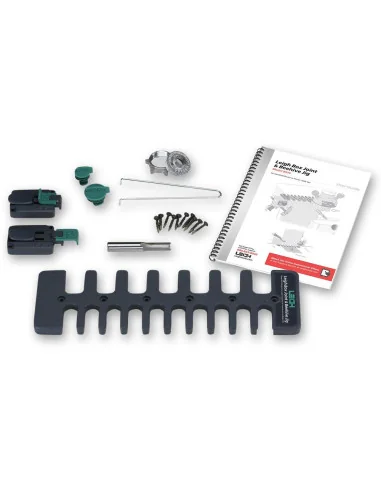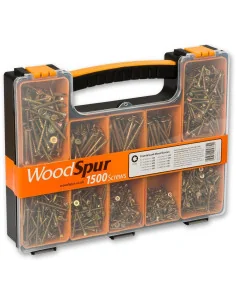Количка за пазаруване
A box joint, also known as a corner finger joint or occasionally a comb joint, as the name implies is an ideal joint when constructing wooden boxes. A classic dovetail joint is beautiful and strong. However, a box-joint is much more appropriate when making boxes from plywood or other man-made boards. It is equally suitable for use with natural timber resulting in an attractive, alternating grain pattern at the corners. The finger construction produces a huge glue surface area, making a box joint as strong if not stronger than a dovetail joint. The Leigh B975 multipurpose box joint jig comes complete with a comprehensive instruction booklet and DVD. It is a simple, easy-to-use jig for making 1/2" (12.7mm) and 3/4" (19mm) box joints on boards up to 33mm (13/16") thick. You can use the jig with a handheld router or on a router table. The only stipulation being the router or table must be able to take a Leigh threaded guide bush (see Leigh Adaptors for Threaded Guide Bushes). The Leigh e10 guide bush supplied with the jig ensures you can achieve perfectly fitting box joints every time. The maximum board width is up to 246mm (1.7/16") using the full jig width or up to 452mm (17.13/16") wide using the step-over procedure (handheld router only). For beekeepers, the design of the B975 helps produce several sizes of beehive supers using 1/2" (12.7mm) and 3/4" (19mm) joints. Standard Equipment included: glass-reinforced nylon template, e10 elliptical router guide bushing, pin wrench for e10 bushing adjustment, TCT straight bit 160, 1/2" x 1.1/4", 1/2" and 3/4" adjustable side stops, 1/2" and 3/4" step-over cams for wide board routing and 10 x 25mm Phillips head screws for mounting.-bg













